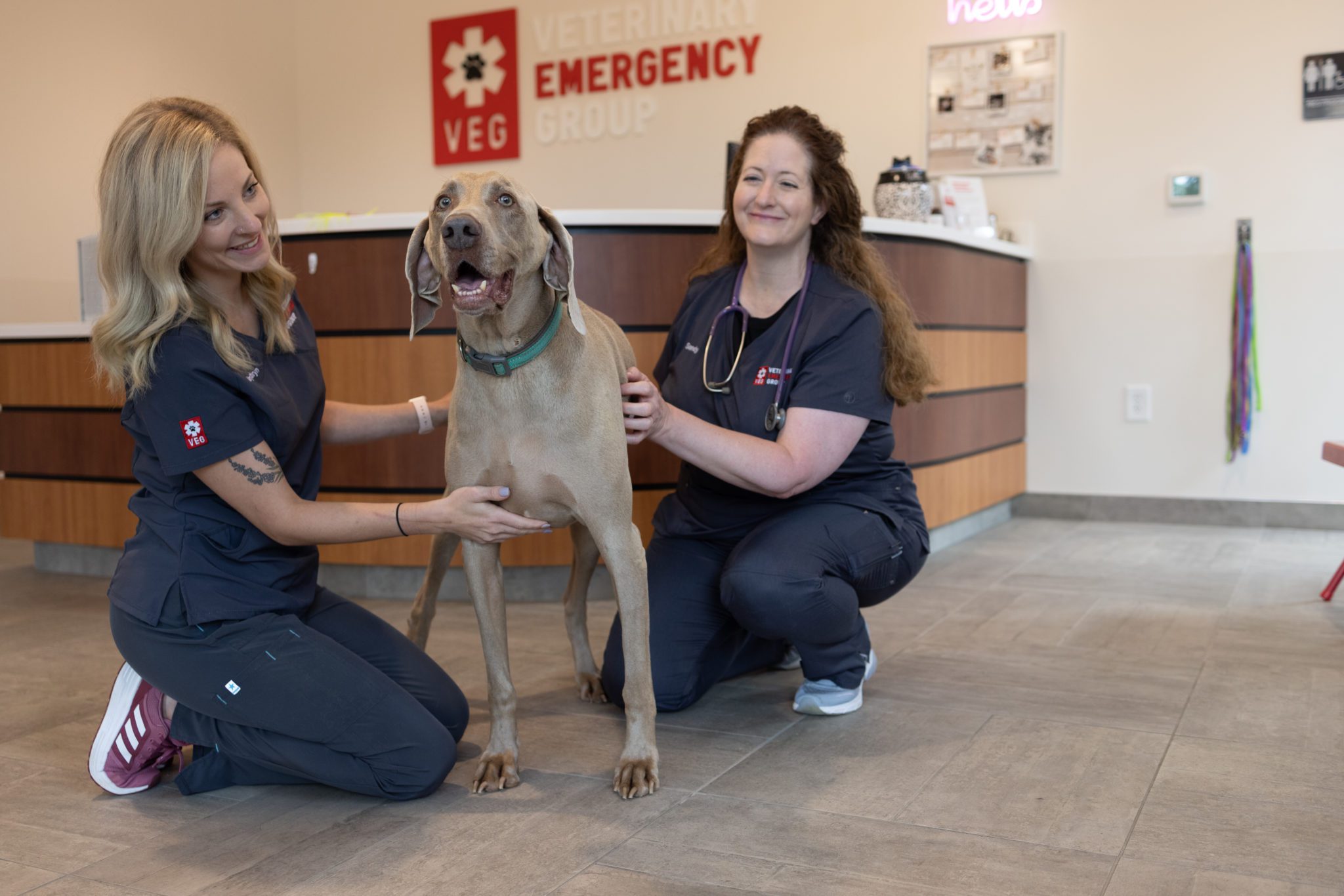
Why is My Dog Having a Hard Time Balancing?
Dr. Kevin Baker
Call & Speak with a doctor Open 24/7, Even Holidays!
Walk in today for:
Emergencies
Point-of-Care Ultrasound
Urgent Care
X-Rays
Diagnostics + Testing
End-of-Life Care
Surgery
Treatment + Hospitalization
Do you have a dog who has been having difficulty staying balanced lately? Are you concerned about what might be causing this symptom in your pet? Is there anything you can do about it?
There are many potential underlying causes of loss of balance in dogs. In the article below, we’ll help you learn more about some of the most common possibilities that may affect your pet. By reading this guide, you’ll be able to determine when your dog may need to see a vet for this issue.
Causes of Loss of Balance in Dogs
The common causes of why your dog is having balancing issues are listed below:
Ear Infection
Ear infections are a common reason dogs lose their balance, especially if the loss of balance is sudden. Other signs that may indicate ear infection include frequent shaking of the head, pawing at the ear, or becoming defensive or aggressive if you try to touch your pet’s ear.
Ear infections are easily treated in most dogs. Your vet will prescribe ear drops for your pet and may also give you antibiotics to give your dog too. In a short time, with the proper treatment, your dog should be feeling better and showing less signs of dizziness too.
Brain Tumor
Although much less common than ear infection, brain tumor is a potential cause of dizziness in dogs as well. If your dog suffers a brain tumor, you will likely notice a wide range of other symptoms indicating a serious problem. Your dog could have a personality change, become incontinent, or have difficulty controlling other parts of the body, too.
Advanced imaging is often required to diagnose a brain tumor. If your dog does have a brain tumor, you’ll need to work with your vet and a specialist to figure out the best course of action for your pet.
Stroke
A stroke can cause sudden, unexplained dizziness in dogs. It can also cause dogs to lose control of part(s) of the body, similar to stroke symptoms seen in humans. If your dog has a stroke, you may notice your pet being unable to stand up or stay balanced well, sudden collapse, head tilt, blindness, circling, stumbling along with incontinence and other related symptoms.
Your vet will examine your dog to see if a stroke is the problem. If so, you’ll need to discuss the possible diagnostics, treatment and management options with your vet. Only a veterinary professional can tell you for sure what to expect following a stroke in your dog.
Head Injury
Dogs who suffer any type of head injury may have trouble balancing. Depending on the type of injury in question, your dog may lose some cognitive functions. A loss of balance after a head injury may be short-term, but it could also last throughout the rest of your dog’s life.
As with the other situations on this list, you’ll need to talk with your dog’s regular vet for more information about dealing with the result of a head injury. You may also need to take your pet to a specialist.
Vestibular Disease
Vestibular disease is a condition affecting the vestibular nerve. The cause can range from inner/middle ear disease or disease of the brain. This often occurs suddenly and is most commonly seen in older dogs. Treatment is aimed at the underlying cause. A thorough examination with a veterinarian and diagnostics such as blood pressure measurement, x-rays and blood work can be important to look for an underlying cause. In certain cases, advanced imaging may be required.
Vestibular disease is not nearly as serious as most of the other items on this list. In older dogs with idiopathic vestibular disease (an underlying cause is not found), they can often recover with minimal long tem effects and continue to live a full, happy life with this condition, as long as you work on managing it properly.
Seizure
Finally, a loss of balance may actually come from a seizure. Some dogs do not have full seizures that cause them to be completely unable to move, but they may still fall down suddenly in the middle of a seizure instead. If your dog seems to suddenly fall down, and especially if this happens along with a bout of incontinence, a seizure could be the cause.
Seizures are common in dogs, and epilepsy is frequently diagnosed in dogs as well. If your dog is diagnosed with epilepsy, your vet will likely give you some seizure medication for her. This medication can help prevent seizures and lessen the severity of this problem as well.
Contact VEG About Loss of Balance in Dogs
Based on this information, it’s easy to see why dizziness and a loss of balance can be so concerning in dogs. Many of the potential causes of this condition are serious, so it’s important to take your pet to the vet as soon as possible to figure out what’s going on.
The good news is that ear infection is the most common possibility from the list above. However, even if your dog just has an ear infection, you’ll need the help of a veterinary professional to treat the problem. Contact your nearest VEG location if you have any questions. You will always speak directly to a qualified veterinarian.

